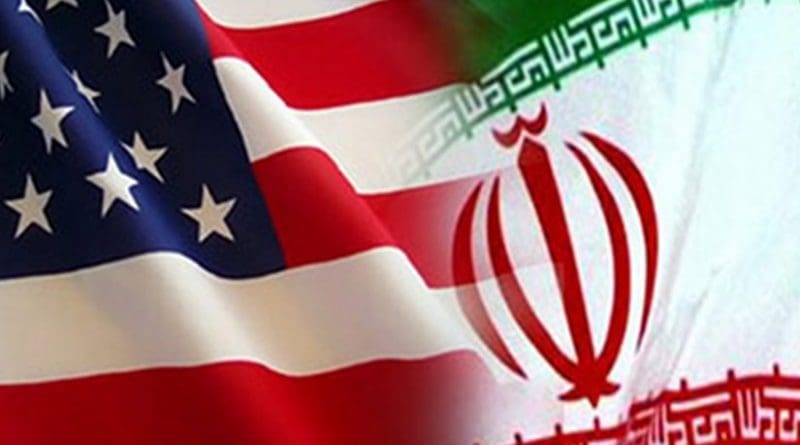Hoodwinking The World – OpEd
By Arab News
By Amir Taheri
Within days the US Congress is to reach a decision regarding the deal that President Barack Obama claims he has made with Iran for curbing its nuclear program. Regardless of that decision, however, Obama has stated that he would use his power to make sure the deal does not fall victim to political infighting in Washington.
But what if the real problem Obama faces over his deal is not with the Republican-dominated Congress but with Tehran? What if the US Congress votes on a deal that does not really exist because the Iranian side has no intention of even acknowledging it as a legally binding contract?
Unless he is a prisoner of his fantasies, Obama is surely aware that the way Tehran regards the deal is diametrically different from his. In Tehran, the ruling elite sees the deal as a piece of candy to keep Obama happy with himself, without committing Iran to any definite course of action. To them, the so-called Joint Comprehensive Plan for Action (JCPOA), which Obama is peddling as “the chance of a lifetime,” is nothing but a wish list to be used a la carte. They have not even bothered with providing an official Persian translation of the text.
Ali Khamenei sees the JCPOA as nothing but a proposal to be examined, improved, amended or even rejected by “competent authorities.”
In other words, he sees the whole thing as the first step, not the culmination of 13 years of negotiations. President Hassan Rouhani goes further. He claims that the JCPOA is nothing but a “political document,” not a legal one. He has opposed its approval by the Islamic Majlis, Iran’s ersatz parliament, under articles 77 and 125 of the Constitution. His reason is that as long as JCPOA has no legal status in Iran, the government could apply or not apply its provisions a la carte. However, if ratified by the Majlis in the form of an Act of Parliament, it would become Iranian law, its implementation obligatory.
In any case, the existing text, in English, lacks the format of a draft bill to be presented to the Majlis. It has to be rewritten, translated into Persian and put in the proper format and language of an Act of Parliament. And that means producing a different text. That, in turn, would open a whole can of worms, starting with the question whether or not the P5+1 would accept the new Iranian text.
That the JCPOA has no legal validity has also been pointed out in a “finding” published by the Council of the Guardians of the Revolution, the Iranian version of the constitutional court. The council claims that, in its present form, the JCPOA is nothing but a hyped-up press release stating a number of desired outcomes.
To be sure, Obama has pushed through UN Security Council resolution 2231 to give JCPOA some legal weight. However, Iran says it will not accept this resolution just as it did not accept the six previous ones on the subject.
The reason is clear: The new resolution puts the issue under Chapter VII of the UN Charter, which leaves the door ajar for military action against Iran in case it does not comply. It would require a great deal of courage even for the strongest of governments to endorse a text that gives others authority to use force against it. Even if it had the courage, the Rouhani administration lacks the strength to contemplate such a course.
There is another, far more important, reason why Tehran is unable to give JCPOA a legal status. If JCPOA is honestly implemented, it would put Iran under the effective tutelage of P5+1 for at least 10 years. Inside Iran, numerous peoples have also exposed the “neo-colonial” character of the Vienna deal as far as Iran is concerned.
In other words, if Iran orally accepted the JCPOA without signing it, the calculation was that, in time and as headlines change and Obama fades away, the whole thing would simply be forgotten. In the meantime, the sanctions regime would crumble as nations rush to secure a chunk of the Iranian market and natural resources.
I have no direct evidence but a feeling that some even within the Iranian negotiating team never felt comfortable with a text that transforms many of Iran’s rights into “permissions” granted by big powers. Lest I be attacked by Obama as a warmonger, let me repeat that I never wanted and do not want anyone to use military force against Iran, least of all the US under this president.
I also want the peaceful nature of Iran’s nuclear program established beyond reasonable doubt and sanctions against Iran lifted. Nor do I begrudge Obama his “candy” about which he is making such a song and dance. The way out would be direct talks between Iran and the UN with the speedy implementation of the six previous resolutions on the agenda. Right now, however, what Obama is marketing is fool’s gold, which as always, could only buy grief.


For many years, oil and Israel were at the heart of American interests in the Middle East, but the rise of China has changed the dynamics of the region. From Obama’s perspective, the deal with Iran is more about countering China’s rising influence in the Middle East than it is about oil or Israel. Apparently, the Saudis and the Israelis are not keeping up with the changes.